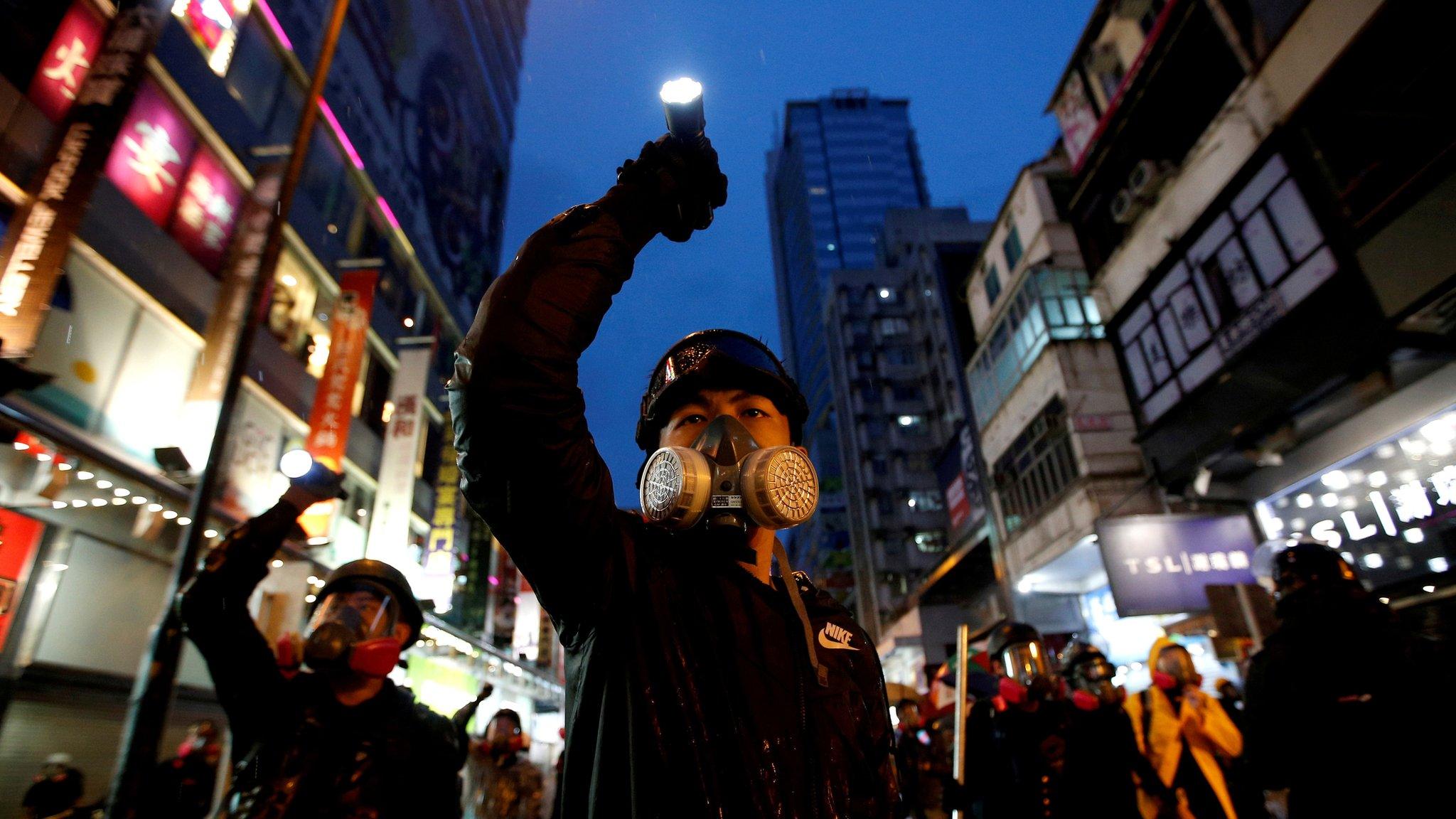Hong Kong protesters hurt in drive-by fireworks attack
- Published
Footage of the incident was shared on Telegram and Twitter
At least 10 people were injured when fireworks were shot from a moving car into a crowd of pro-democracy activists in Hong Kong.
Video on social media showed people running for cover as fiery trails were shot towards them outside a police station in Tin Shui Wai district.
The activists had been supporting a small number of protesters who had been detained inside the station.
Tensions are high in Hong Kong after weeks of anti-government protests.
The incident early on Wednesday came as more than 40 activists appeared in court charged with rioting, after a protest on Sunday ended in violent clashes with police.
If convicted, they could face up to 10 years in prison.
Allow X content?
This article contains content provided by X. We ask for your permission before anything is loaded, as they may be using cookies and other technologies. You may want to read X’s cookie policy, external and privacy policy, external before accepting. To view this content choose ‘accept and continue’.

Campaigner Jack Hazlewood posted videos of the attacks collated from the private messaging app Telegram and other online sources.
Footage from Tin Shui Wai showed the car from which the attack was launched speeding away. The attackers have not been identified.
Allow X content?
This article contains content provided by X. We ask for your permission before anything is loaded, as they may be using cookies and other technologies. You may want to read X’s cookie policy, external and privacy policy, external before accepting. To view this content choose ‘accept and continue’.

Police "strongly condemned" those responsible and said they were investigating.
It was the second time this month that pro-democracy activists had been attacked.
On 21 July, men dressed in white shirts and believed to be triad gangsters assaulted protesters and passers-by in the Yuen Long area, after some demonstrators had stormed China's central government building and defaced the national emblem.
Protesters alleged that the gangsters were acting at the behest of the authorities, a claim strongly denied by the government and police.
Allow X content?
This article contains content provided by X. We ask for your permission before anything is loaded, as they may be using cookies and other technologies. You may want to read X’s cookie policy, external and privacy policy, external before accepting. To view this content choose ‘accept and continue’.

Elsewhere in Hong Kong, another crowd braved an approaching typhoon to gather outside a court where 44 people were charged with rioting. It is the first time the Hong Kong government has used the charge in connection with these anti-government protests.
The protesters chanted "revolution of our time" and "liberate Hong Kong".
The 44 were released on bail until September and most were given a midnight curfew.
Those gathered outside were in defiant mood.
Protesters chased officers and threw projectiles but other demonstrators urged them to stop (EVN/ Aaron McNicholas)
"I'm not scared to protest. This whole thing today is just making me more angry," said one protester, who gave his name as Gartner.
China has largely allowed Hong Kong's authorities to deal with the protests but fears are growing that it could step in if disruption continues.
In a rare intervention, China's top policy office in Hong Kong condemned Sunday's violent clashes as "horrendous incidents" that have caused "serious damage to the rule of law".
A spokeswoman for the Hong Kong and Macau Affairs Office insisted that the territory's "top priority" was to "restore social order".
How did we get here?
Demonstrations in Hong Kong began over a controversial bill that would have enabled extraditions to mainland China.
The BBC's Nick Beake described the "chaos" on the streets over the weekend
The government has since paused work on the bill, but protesters want it withdrawn completely.
The demonstrations have also broadened into a wider movement, with activists demanding democratic reform and an independent inquiry into police violence.
As a former British colony, Hong Kong has its own legal and judicial systems, and has been promised "a high degree of autonomy" from the Chinese government except in foreign and defence affairs.
- Published29 July 2019
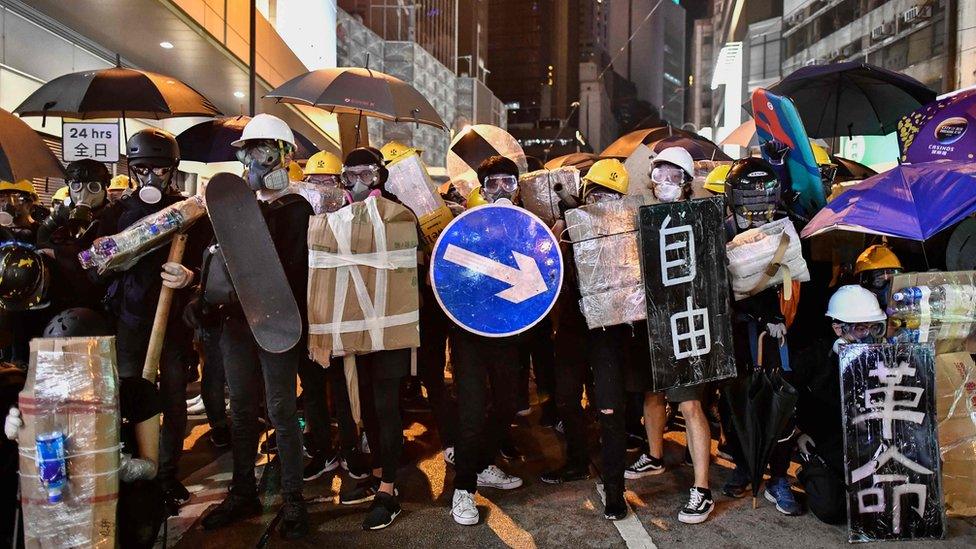
- Published31 July 2019
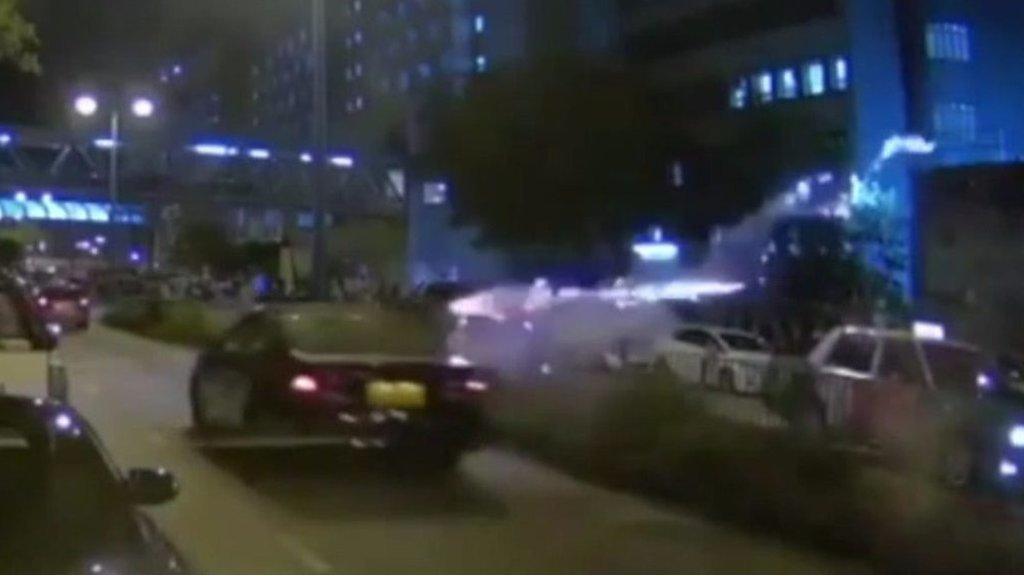
- Published27 July 2019
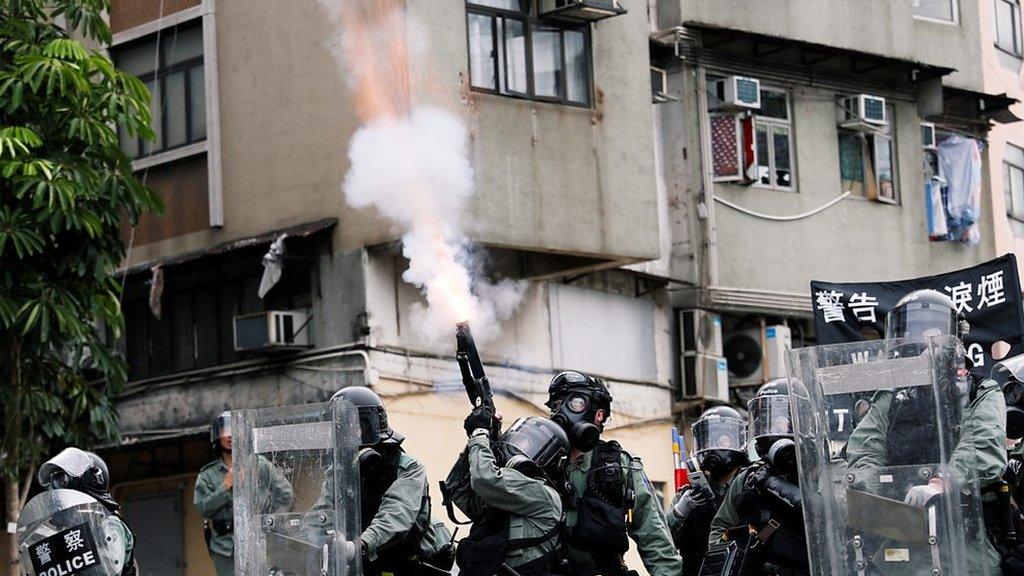
- Published22 July 2019
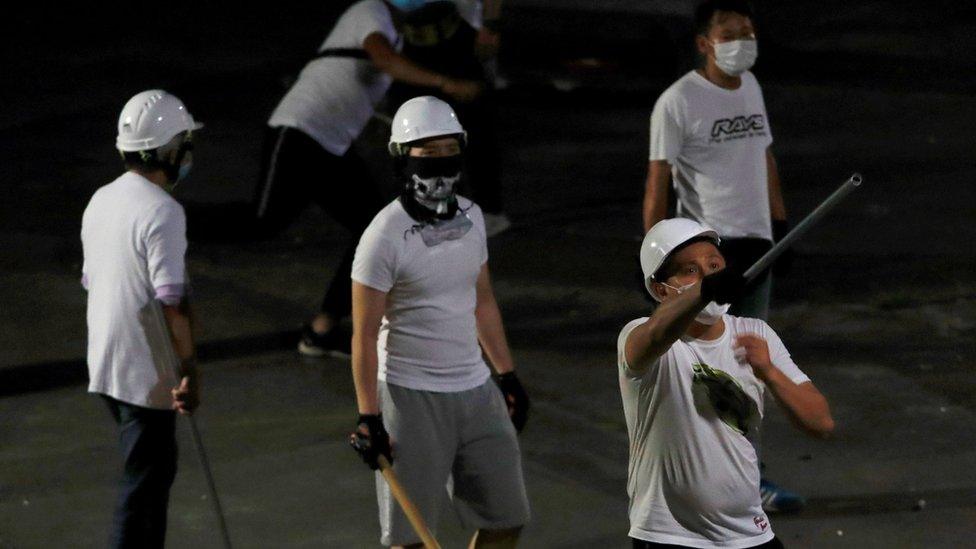
- Published21 May 2020
